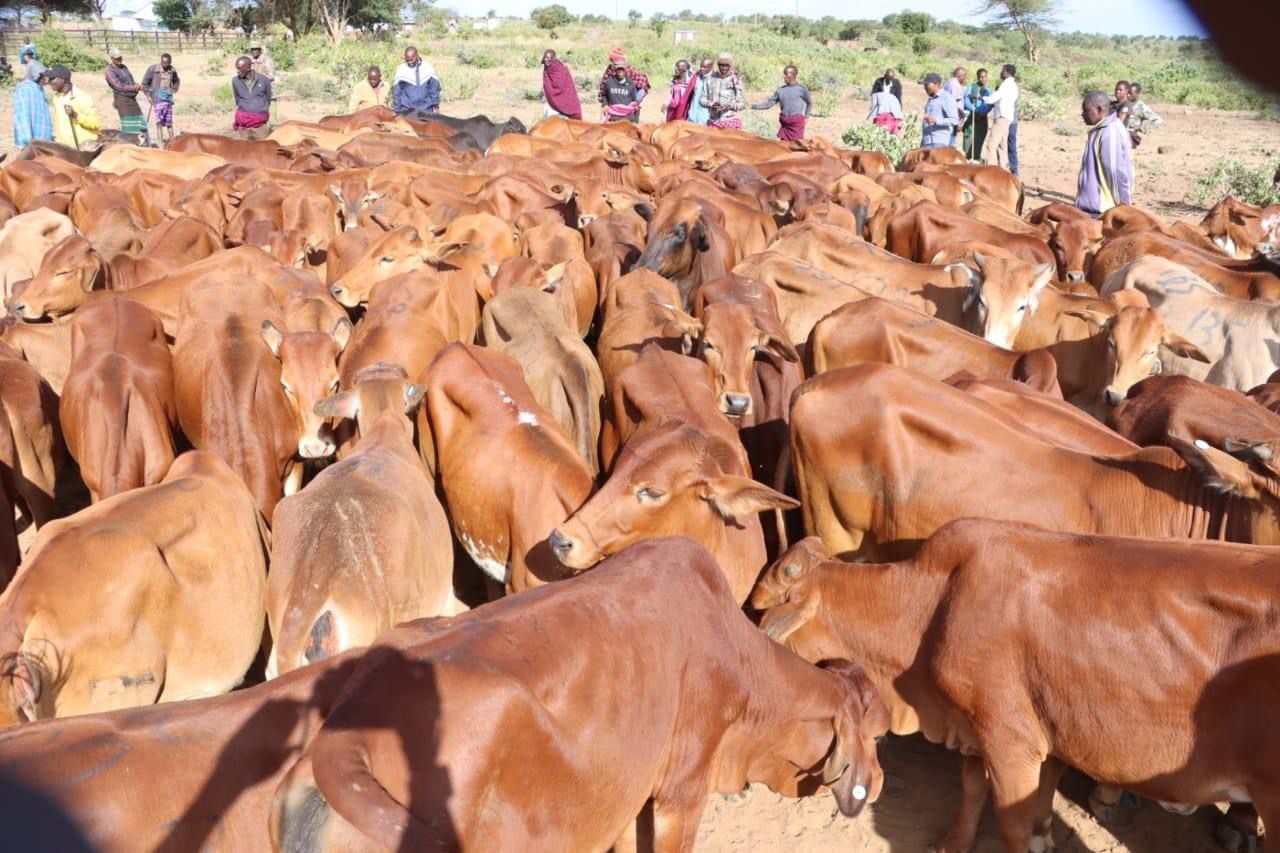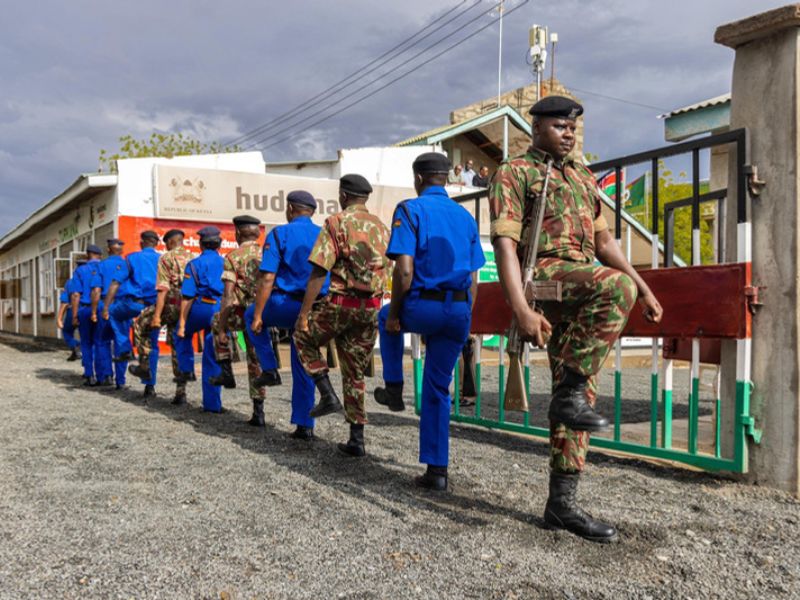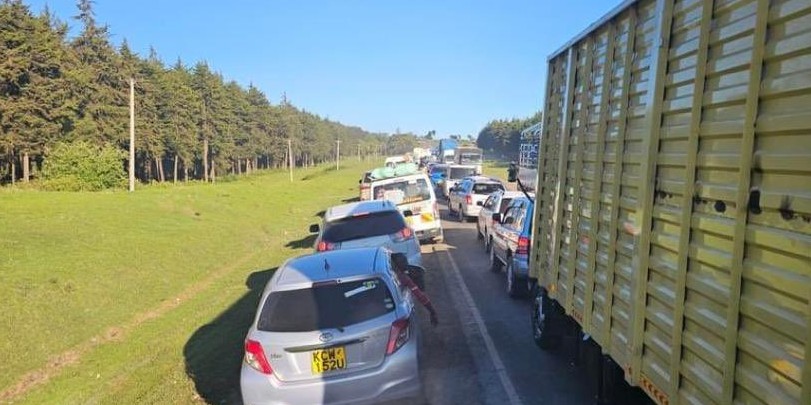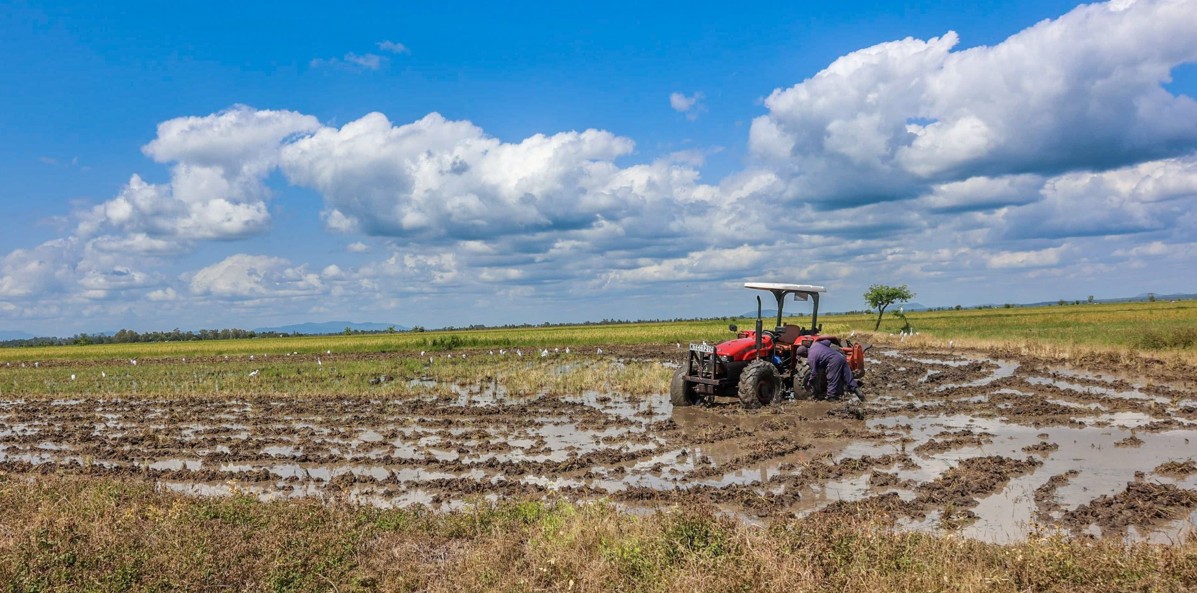Govt research reveals a dangerous drift in cattle rustling, banditry in Kenya

According to the report, the local community is aiding the vices in inciting, planning, and executing livestock raids, providing poor upbringing for children, and collaborating inadequately with government security organs.
A new report by the National Crime and Research Centre (NCRC) has revealed a shift in the form that banditry and cattle rustling are taking place in 13 counties that contribute to the undermining of the ongoing Operation Maliza Uhalifu (OMU), North Rift.
The "Preliminary Report on Managing the Dangerous Drift in Livestock Rustling and Banditry in Kenya" found the present-day livestock rustling and banditry menace to be different from the traditional form of cattle raiding in at least 18 aspects amongst them: diminishing value for human life as evidenced by the higher number of people injured and killed during livestock rustling and banditry, increased use of terrorism-like violence against victims (some of whom are unarmed and helpless, like women and children), and militarisation of modern weaponry during livestock rustling and banditry incidents.
More To Read
- Four officers linked to illegal arms, ammunition trade arrested
- Kenya to reopen regional police training hubs in fight against terrorism and banditry
- Voluntary disarmament gaining momentum in North Rift, at least 100 firearms surrendered
- Sports for Peace: How sporting activities are uniting North Rift communities
- Drugs, gangs, and land disputes are major threats to Kenya’s security -CS Murkomen
- Government to build seven police stations in Tiaty, Baringo in bid to curb banditry
It also noted an increased commercialisation of the two crimes, a factor driven by the demand for stolen livestock and their products.
At the same time, the report stated that the two vices are sustained by the proliferation of illegal small arms and light weapons, high levels of ignorance or illiteracy among the youthful population in the pastoralist regions, poverty, the government's inability to provide adequate security protection to vulnerable local communities, and retrogressive cultural norms, beliefs, and practices.
"Other important drivers and factors sustaining present-day livestock rustling and banditry include historical ethnic or intercommunity hostility, inter-community competition for scarce natural or economic resources, socio-cultural reasons, an inadequately regulated market for livestock-related products, cycles of revenge, the need to restock after loss of livestock during droughts, acceptance of livestock rustling and banditry as a norm accepted by the local communities, developmental marginalisation of the pastoral cluster regions, and political motivation."
The report then identifies less-educated and unemployed individual male youths (including community warriors and youthful gangs) as the pack leading in the criminal acts alongside politicians, business persons, from both within and outside the local community, local community elders and rogue government officers (including public security officers).
According to the report, the local community is aiding the vices in inciting, planning, and executing livestock raids, providing poor upbringing for children, and collaborating inadequately with government security organs.
On their part, elders are accused of recruiting raiders, offering them spiritual support, guidance and counselling, and helping in hiding and moving stolen livestock as well as weapons used in the attacks, after which they conduct cleansing ceremonies.
"The main roles of women were reported to include: hero worship and cherishing (for example through praise songs) of successful youthful livestock rustlers and bandits; cooking for the livestock rustlers and bandits; helping in hiding and moving stolen livestock; and participating in the socialisation of children into livestock rustling and banditry."
Children are cited as being involved in the hiding and moving of stolen stock, as well as raiding and spying on the target areas on behalf of livestock rustlers and bandits.
 A livestock restocking exercise in Samburu County. (Photo: File/ Issa Hussein)
A livestock restocking exercise in Samburu County. (Photo: File/ Issa Hussein)
"Males, as opposed to females, suffered the most during such incidents, with this being the pattern in 8 out of 13 study counties (that is, 61 per cent of the counties); and that those who suffered most were those aged 34 years and below, with the youth age of 18-34 years being the most affected."
The report also revealed that the perpetrators now prefer to move in groups and that animals stolen end up in neighbouring counties.
"Mapping of the movement and/or destinations of the livestock taken during incidents of rustling and banditry showed that most of the animals taken (75.5 per cent) ended up within the neighbouring counties; 21.1 per cent ended up within the same local community they had been stolen from; 18.5 per cent ended up in other communities within the county they had been stolen from; and 10.4 per cent ended up in distant counties not in the neighbourhood."
The raids were conducted using the following weapons in the order of prominence: assault rifles, home-made guns and pistols, most of which were mainly sourced from the cross-border suppliers of firearms, followed by supplies from local businessmen and politicians.
Other weapons include bows and arrows (most used), followed by spears and javelins. Among the sharp or bladed weapons, the most used were knives, followed by swords and daggers.
The findings further showed that in most of the counties, most incidents were committed mainly during the weekends, with Sunday leading, followed by Saturday, then Friday during dark hours, especially from 7.00 pm to 11.59 pm, followed by late night from 1.00 am to 3.59 am and mid-night from 12.00 am to 12.59 am.
"This pattern is being experienced in 11 out of 13 counties. Again, most incidents happened during the months of December, followed by April and then November, thus reinforcing another finding that most incidents happened during the rainy seasons, followed by dry seasons and then festive seasons. Furthermore, most incidents were likely to occur during the Christmas festive season, followed by the season of community cultural festivals."
The report notes that the multifaceted nature of the banditry and cattle rustling has jeopardised national security, requiring a more multifaceted and multiagency response that "does not over-prioritise the current militarisation and policing of the problem whose success has been sluggish, if not minimal, but rather one that addresses the different facets of the problem."
"A paradigm shift from a predominantly state-dominated security to a community security-based intervention and approach founded on the Community Asset Management (CAM) principles that emphasise building and enhancing the collaboration, capacity and willingness of local communities and non-state and state actors to address livestock rustling and banditry," the report adds.
This will sensitise the locals to alternative sources of livelihood.
In 2022, President William Ruto vowed to put an end to criminal activities with the launch of Operation Maliza Uhalifu early last year and a commitment to allocate Sh2 billion to the operation.
The delayed release of the funds has, however, delayed the implementation of the National Shared Security Strategy for enduring peace and security in the North Rift region, which is acting as the guide to the operation's activities.
The strategy noted that for the operation to achieve sustainable impact, it will have to develop projects such as roads and school construction, but, so far, only a fraction of the kitty has been allocated, forcing the deployed unit to stretch their limited available resources to work on some schools and projects.
The NCRC report further recommends that there be improved security and regulation of the livestock sector through setting up livestock databases and compulsory tagging of animals to enable tracking of movement.
Finally, a deliberate bandits' reform plan is supported by the process of disarmament, demobilisation and reintegration (DDR) of active rustlers and bandits.
 A quarter guard mounted for Interior Cabinet Secretary Kithure Kindiki at the start of his visit to Lodwar, Turkana County, on March 28, 2024, for activities regarding Operation Maliza Uhalifu. (Photo: Interior ministry)
A quarter guard mounted for Interior Cabinet Secretary Kithure Kindiki at the start of his visit to Lodwar, Turkana County, on March 28, 2024, for activities regarding Operation Maliza Uhalifu. (Photo: Interior ministry)
Top Stories Today













































